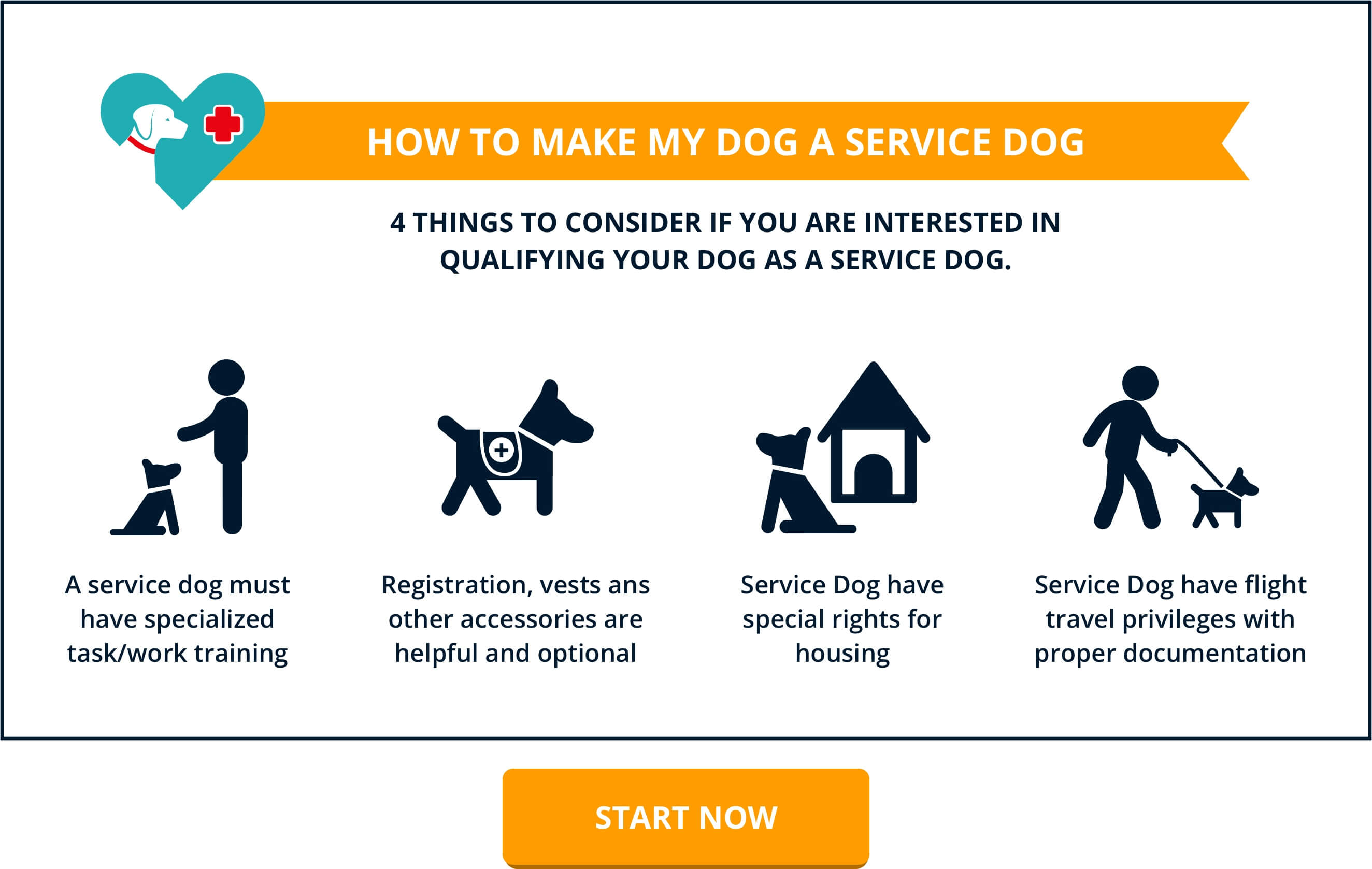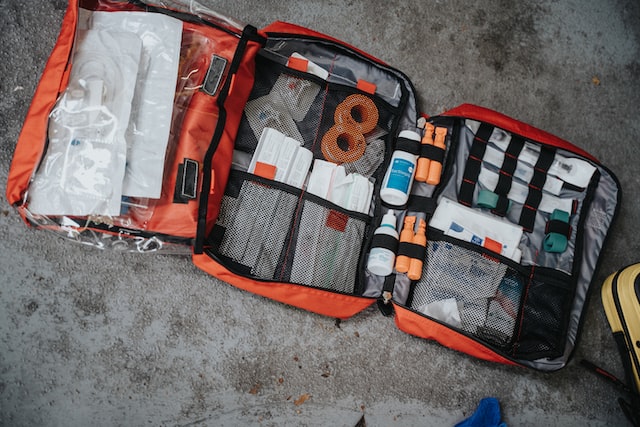
According to researches, 39 million people in the US and 1 billion people worldwide cope with migraine. While regular headache causes pain in the head or upper neck and may have different intensity and frequency, migraine is considered a primary headache disorder which can cause severe pain. Symptoms of migraine are more extreme, and they are likely to lead to serious weakening and loss of energy.
Since this migraine is a condition that affects a lot of people, interfering with their normal daily routine, we would like to provide you with more information about its causes, treatment, and benefits from using a service dog.
What Can Cause Migraine?
The exact cause of migraine is not completely known. Imbalance in the chemicals in the brain like serotonin, brain stem changes, and the way it interacts with the trigeminal nerve, is listed as some reasons. It is also proved that genes, factors of the environment, and lifestyle have a serious impact on the person’s predisposition to develop migraine.
There are various factors, that may trigger migraine.
Migraine Triggers
Food and Food Additives
Any food that has gone through serious processing and/or is too salty, sweetened, and contains many preservatives like monosodium glutamate might trigger migraine and should be avoided.
Drinks
We are confident that many of you start your day with a cup of hot coffee and can not imagine giving up your favorite drink even for one day. Unfortunately, significant amounts of caffeine as well as too much alcohol, especially wine, might lead to migraine. We would recommend that you drink reasonably.
Stress
We live in a dynamic world where everything seems to change rapidly... The more we let the hectic daily life overwhelm us and have a big impact on our physical and emotional state, the bigger the chance of developing migraine is.
Changes in Sleep
If you are hyperactive or just want to use the full potential of the day, whether by being engaged in work, social interactions or a hobby, you may lack enough sleep. Hence, you are more likely to suffer from migraine than others. Too much sleep can have the same result as well.
Physical Factors
Too intensive physical exercises or any kind of physical exertion may also cause migraine. We would recommend that you take care of your physical health and try staying in a good shape, without going to extremes.
Changes in Weather
Changes in weather and barometric pressure, in particular, may cause migraine in some people.
Sensory Stimuli
Some people are more sensitive to stimuli like strong smells or loud sounds. Smoke smell, too strong perfumes, sounds produced by fireworks, flashlights...etc., can affect you negatively and lead to migraine.
Hormonal Changes
This factor is valid for women prior to or during pregnancy, menstrual periods, or menopause and can cause migraine.
Medication
While some women benefit from the use of hormonal medications, due to their ability to mitigate the symptoms of certain health conditions, others are likely to suffer from their side effects and may develop migraine.
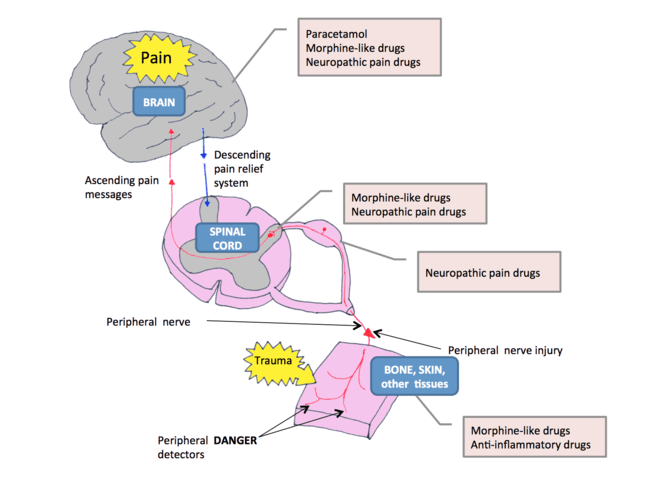
Migraine Treatment
Usually, the standard migraine treatment includes two types of medication:
-
Medication for prevention
-
Medication for pain relief
Preventive medication is typically prescribed to reduce the frequency of migraine, the intensity of the attacks and their duration. This kind of medication may include:
antidepressants, blood pressure-lowering medications, medication for seizure prevention, CGRP monoclonal antibodies, botox injections.
Usually, pain-relieving medication is taken when the first signs of migraine occur and may feature:
triptans, pain relievers, ubrogepant (Ubrelvy), CGRP antagonists, dihydroergotamine (D.H.E. 45, migranal), ubrogepant (ubrelvy), opioid medications, anti-nausea drugs...etc.
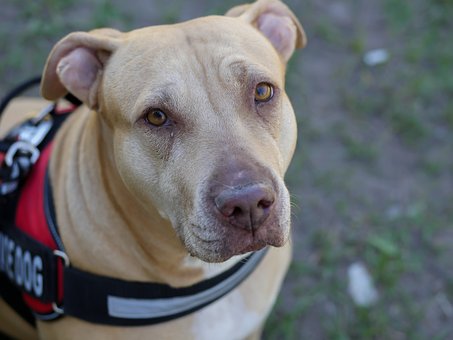
What Are Service Dogs?
Service dogs are dogs who are individually trained to perform specific tasks for the benefit of a person with a physical and/or mental disability. These tasks must be directly related to the individual’s disability.
How People with Migraine Can Benefit from Service Dogs?
The extreme pain that migraine causes, may lead to impairment of certain abilities like vision and hearing, as well as of body functioning in general.
Service dogs can be trained to notify you about an oncoming migraine episode. This can be done through training the dog to use his/her strong sense of smell to recognize a migraine up to 48 hours before it occurs. You can use a swab of your saliva and pair the smell of it with a certain behavior that you would like your dog to perform such as licking, pawing, nudging, barking, staring at you, walking in circle around you...etc. The tasks that service dogs perform can be adapted to their owner’s needs, i.e. some owners do not feel comfortable with their dogs licking their faces and replace the “give kiss” command with “nudge” command.
Since dogs are intelligent and attached to their owners, they are likely to sense not only chemical changes in the body, but behavioral changes as well. Once they recognize any deviations in your emotions and the way you act, they can be trained to alert you. Some dogs have the innate ability to sense the way their owner feels and learn quite quickly how to respond accordingly. If your symptoms are too severe, you may experience a seizure and benefit from a service dog who will help you stay on your feet or protect you from falling down. Also, some medications have side effects like dizziness and the affected person may need assistance during the time right after taking medication.
Service dogs can be a great help to people who live alone and can not rely on someone when feeling sick or when having an episode in public. Trained service dogs can guide you to a safe place, stay with you to provide comfort or notify a passerby about your condition. If you are at home, service dogs can alert your family member and even be trained to dial 911 in case that you are experiencing more severe symptoms.
Other types of tasks that service dogs can perform are mobility tasks like opening/closing doors, cabinets, picking up and retrieving fallen objects.
In general, service dogs can assist people with migraine by performing:
-migraine alerting tasks so that the person can take their medication and find a safe and comfortable place to sit;
-follow-up tasks so that the person can get back to their normal state of functioning as soon as possible;
Also, we can divide the tasks that service dogs perform for the benefit of a person with migraine into the following two groups:
-physical tasks, mobility-/balance-related;-emotional support tasks, as deterioration of health may affect negatively the emotional state as well.
Emotional tasks usually include Deep Pressure Therapy and tactile stimulation. Based on the dog’s size they can be trained to jump on their owner’s lap or put their chin on the owner’s arm/shoulder/leg.
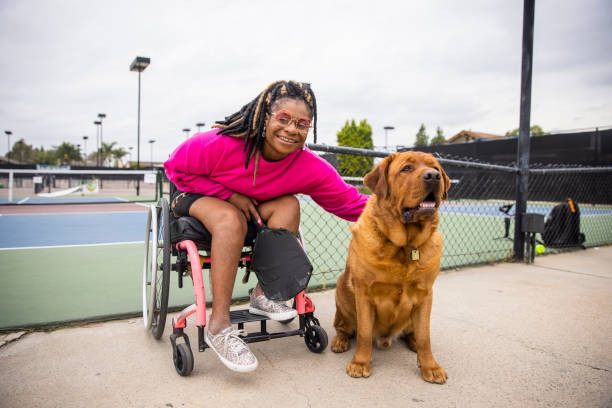
How to Get a Service Dog for Migraine?
You can contact a service dog training organization in your area and check their services. Often there are training packages available that combine different types of basic and advanced skills. If the group classes and board & train services that many organizations offer do not work for you due to your specific needs, you can contact a personal trainer or check with the organization for one-on-one training options.
Another option is to get a dog and train them yourself. The advantage of this option is that you will be able to teach the dog the tasks that will actually help you in your daily life. Also, you will not need to comply with the requirements, schedules, and fixed training packages of a professional organization. US-citizens can benefit from training their own dogs due to the Americans with Disabilities Act (ADA) regulations: “People with disabilities have the right to train the dog themselves and are not required to use a professional service dog training program”. However, you have to be prepared to invest time, patience and energy in this endeavor. If you do not feel confident enough to conduct training all by yourself you can enroll in an online course. This can be considered a good compromise, as you will have to pay for the course, but the price will be affordable, and you will not have to spend thousands of dollars in training organizations. Also, you will be able to adapt the training to your needs and benefit from the phone/email/chat support that many training schools offer.

What Breeds We Would Recommend?
What breed will suit you best, depends on your personal needs. If you have severe symptoms that impede your mobility and general functioning, you may need a dog of a larger breed that will help you with various daily tasks and be a good balance dog as well.
Golden Retrievers, Labrador Retrievers, German Shepherds, Standard Poodles, and Labradoodles are considered suitable options.
If you think that you can handle your symptoms and will benefit more from the emotional support that dogs provide, you can consider smaller breeds as well, i.e.:
Cavalier King Charles Spaniel, Pomeranian, Beagle, Poodle (Poodles come in the following variations: Toy Poodle, Miniature Poodle, Medium Poodle, and Standard Poodle, so you can choose the best option for you).
Regardless of the breed, you may want to be sure that your future service dog has a calm and stable temperament, a friendly personality, gets along with other animals and people is not aggressive and is eager to please its owner.



